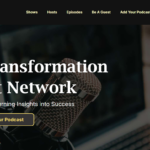If you read my book, The Quantum Age of IT, you probably remember the term “The Curse of Knowledge.” It’s a simple concept that was illustrated by a Stanford post-graduate student in the late 80’s.
It simply says that once you know something to be true, it becomes almost impossible to unknow it or imagine that anyone else does not know it.
The “Curse of Knowledge” changes how we teach, how we learn and even impacts our creativity. We begin to limit ourselves based on what we “know to be true” – even when it ceases to be true any longer.
But knowing that we are subject to this curse, to this bias, is only the first step.
The real question is what do we need to do to overcome it.
And as you plot your future career course, overcoming it will become vital as almost everything that you presently “know to be true” will suddenly become untrue as our world changes around us.
In their book, Decisive: How to Make Better Choices in Life and Work, Dan and Chip Heath (two of my favorite authors!) identify the four “villains” the afflict the four stages of decision making and provide approaches to overcoming them. I believe, however, that these approaches are also useful in overcoming the Curse of Knowledge in your daily life.
1. Avoid the Narrow Frame
Too often, we frame a decision as “either or.” Either we will do this, or we will do that. Either this is true or that is true. But the reality is that life is rarely that black and white. Most of our daily reality is a solid gray. One of the traps of the Curse of Knowledge is that it predisposes us to a binary belief system. We know this is true, so therefore everything and anythign else must not be. But as our world is shifting around us, that will increasingly not be the case. In many cases, multiple truths will exist at the same time. So your goal is to avoid the narrow frame. In every situation, think to yourself, “This has always been the case, but what if today there are other options. What might they be?” That kind of openness will help you avoid the Curse of Knowledge.
2. Avoid the Confirmation Bias
Have you ever decided that you are going to buy a new car and had selected a certain model? And then once you’ve made your decision, you seem to notice that car EVERYWHERE? This is a phenomenon called confirmation bias. At some point in any decision making process, you are likely to have selected a preference prior to beginning the gathering of research that is supposed to help you make that decision. It will be sublte and perhaps subconscious, but you will begin to prefer data that backs up your preferred decision. It happens almost all the time. When you are dealing with the Curse of Knowledge the same thing will happen. Even as you are confronted with evidence that what you know to be true may no longer be so, you will instinctively seek out and find “data” that proves your original assumption to be correct. Instead, you will have to purposefully and intently seek out research and data that runs counter to what you know to be true. It is only through this process that you will discover if the truth you are clinging to remains true or not.
3. Avoid Short Term Emotion
When you are faced with the realization that the reality you have known and trusted has changed, your first reaction is not rational – it’s emotional. Each of us has a lot invested in and take a lot of comfort from relying on the stability of what we know to be true. So when somethign or someone comes along and threatens that stability by telling us that everything is changing, it creates a visceral and emotional reaction. But that immediate, short term, emotional reaction is likely clouding our ability to see whether the reality is really shifting or not. To ensure that you’re not being clouded by the Curse of Knowledge, you need to create space. In most cases, this is simply a matter of time. You must allow yourself to not immediately pass judgement and then to be willing to explore the potential new reality openly and subjectively. You must overcome the short term emotional reaction so that you can fairly validate the situation.
4. Avoid Overconfidence
Perhaps the biggest threat that the Curse of Knowledge brings is overconfidence. Because we know something to be true, we move forward with confidence in that knowledge. We use that knowledge to predict how things will work and how others will react and respond to things. But that confidence is almost always overstated. The hard truth is that we know much less than we think we do. So you must be willing to go into every situation with humility. You must let go of your over confidence and the belief that you understand how everything works and what decisions will be made. By doing so, you will be able to question yourself and your beliefs and ensure that you do not become subject to the Curse of Knowledge.
The Curse of Knowledge may be the single greatest threat affecting your ability to personally adapt and grow in the coming years. As our world continues to transform, the majority of the “rules” by which we’ve worked for the last 45 years will begin to fall away. As they do, the Curse of Knowledge will become a prison, trapping us in a self-limiting way of thinking. But using these four tips, you can overcome the Curse of Knowledge and prepare yourself for the changes that are upon us.
About the Author:





